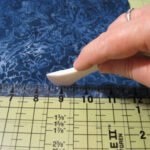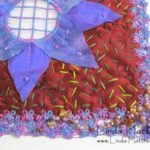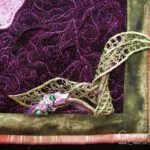In this tutorial I’m going to show you a fun and creative technique for making what I call “fiber doodles”.
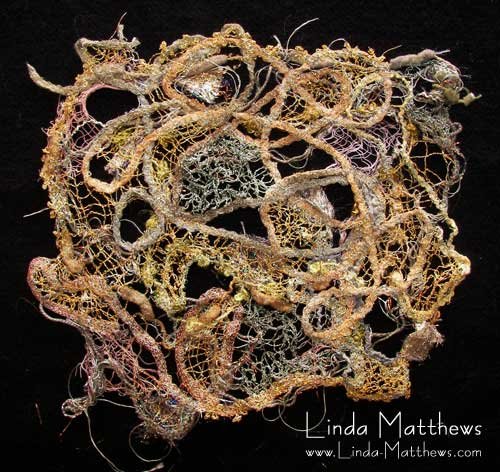
Fiber doodles which are pieces of decorative fabric that are made using thread, decorative yarn or fiber, and water soluble stabilizer. These fabric pieces can then be used as background pieces on art quilts or other sewing projects, or they can be used as focus pieces on wearable art and clothing. Or you could extend the width and length and turn it into a scarf!
What You Need
Machine Setup
Set up your machine for standard sewing with decorative thread in the top and the same thread in the bobbin, and use a zigzag stitch.
Tip: You could also use monofilament thread for effects where you don’t want the sewing thread to be visible and the yarn looks like it’s just floating in place. Very magical!
Instructions
To begin, cut a piece of water soluble stabilizer approx 8″ x 8″. Depending on what type of water soluble stabilizer you use, you may need to use several layers so that the stitching doesn’t distort things while you sew. You might have to do a test first to see how it holds up.
Using a marking pen, draw a 1” grid to be used as sewing guidelines. For this tutorial I’m using one layer of Sulky Super Solvy.

Cut some lengths of decorative fiber or yarn 12” long.
Starting from the center and working your way out towards the edges of the stabilizer, position the lengths of yarn along the marked lines and allow the ends of the yarn to overhang by 2” at each end. This will turn into a fringe. Sew the yarn to the stabilizer using a zig-zag stitch.

Continue working from the center out, adding strands of fiber until all the rows are sewn over. Take your time and enjoy the process.
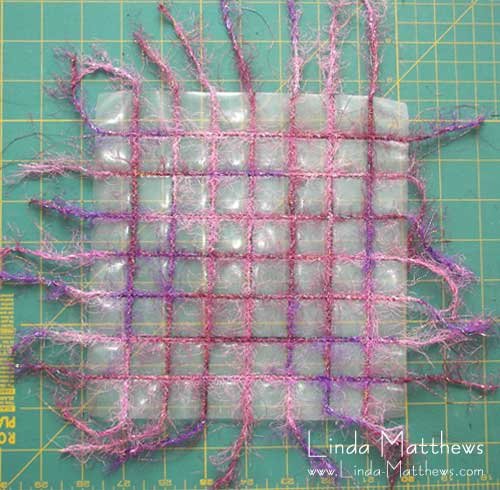
Now sew rows of straight stitch in between the rows of fiber to hold everything in place. This will also help to keep the shape.
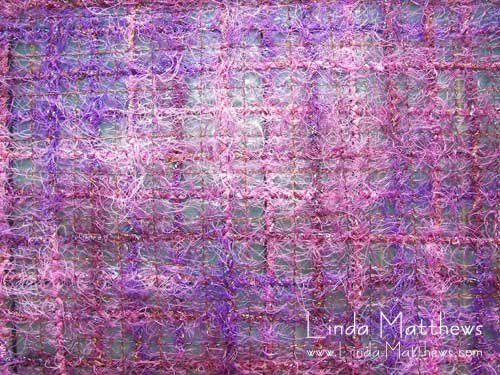
The final step is to wash away the stabilizer and watch the magic happen.
It’s always best to follow the manufacturer’s directions, but generally you only need hold it under some running water until the stabilizer washes away. This can take a little while when using this thick Solvy, so I generally run most of it away under a running tap, and then let it soak in a bowl of water for ten minutes or so and then rinse again. You may need to do this two or three times to totally remove the residue.
What you have left is a soft, lacy piece of cloth.


Once you’ve got the basics mastered, you can experiment a little. Try adding other elements such as sheer fabrics, or angelina fiber, or even some free motion stitching using metallic threads.
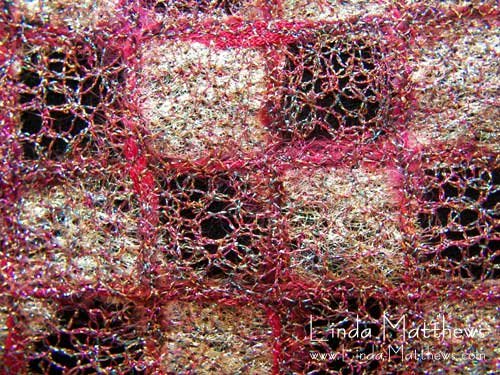
You could also go crazy and instead of a structured grid, just do the whole thing freehand. This is one of my favorite methods because you know how much I love to work intuitively.


Isn’t that magical? I *love* working with this stuff.

